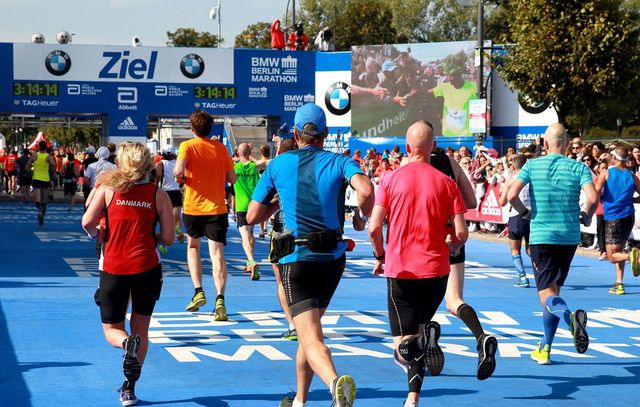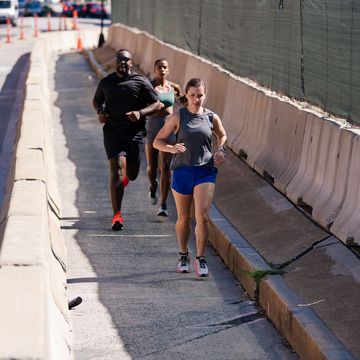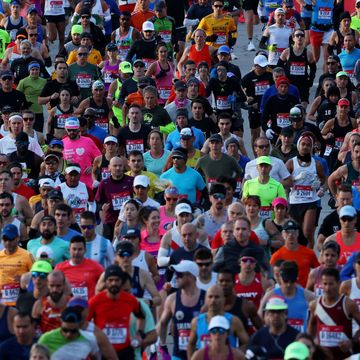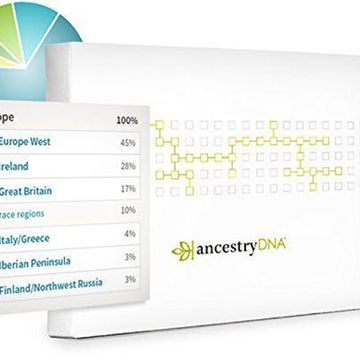Runner’s World has updated its Race Time Predictor to give you a more accurate assessment of your likely marathon finish time. What’s changed? For starters, when predicting a marathon time, you can now input the results of two races you recently completed, instead of just one. Because past finishing times are helpful in determining future finishing times, this info will produce a more accurate result. In addition, the new Predictor allows you to get a result adjusted for your average weekly training miles. If you ran 50 miles a week in training, you will get a faster predicted time than if you ran 20 miles a week. This is a breakthrough approach not available from other calculators.
The new Predictor is derived from data-driven research just published at Bio Med Central. The paper, titled “An empirical study of race times in recreational endurance runners,” is available as free, full text. Lead author Andrew Vickers, a sub-3-hour marathoner and cancer statistician at Memorial Sloan Kettering Cancer Center, found that most pace calculators underestimate correct marathon finish times by 5 to 20 minutes. As a result, runners using the calculators to pace themselves might start too fast in their marathons—a sure recipe for failure.
A smarter method: Have a more accurate appraisal of your marathon time from the start, and plan your pace accordingly. That’s what the new Predictor is designed to help you do. (Keep in mind predictions can be moot without the right plan to get you to the starting line. Find the perfect Runner’s World Running Shoes - Gear right here.)
Many previous online calculators are based on innovative work done by American runner and course-measurement expert Pete Riegel. Only Riegel faced a severe limitation: When he created his first “equivalent time calculator” in 1977, he had little data to work with, so he based his calculator on the performances of world-record holders, fully realizing that his formula might not apply to mid-pack and back-of-the-pack runners.
Once unleashed, Riegel’s formula became so popular that it took on a life on its own. Many websites adopted it, while few questioned its limitations.
Other calculators were based on aerobic fitness, a key component of marathon success, but far from the only one. (See more below.)
To devise a calculator based on the performances of more typical runners (non world-record-holders), Vickers collected training and race-results data via web survey from 1,022 recreational marathoners. His subjects had an average marathon finish time of 3:28 (men) and 3:54 (women), roughly 50 minutes faster than average national times collected by Running USA, but still far from elite status. And, the Vickers data set included 150 runners with marathon times over 4:30. “That’s a reasonably large number for statistical analysis,” he says, “and much larger than many other studies.”
When Vickers ran the numbers, he discovered a discrepancy between his results and other marathon predictors. Here’s an example: Let’s assume you have run a half marathon in 2 hours and want to estimate your marathon time. While many online calculators will give you a prediction from 4:07 to 4:12, Vickers finds that 4:17 to 4:30 is more accurate.
Runner’s World continues to use the Riegel formula for race time predictions up through the half marathon. Both Vickers and others have found that it works well for 5Ks, 10Ks, and half marathons—all the common distances shorter than the marathon.
When it comes to the marathon, however, many factors beyond pure aerobic fitness come into play. These include: training volume, fueling (pre-marathon and during-the-marathon), hydration, thermoregulation, and more. All these factors tend to slow your marathon pace, which is exactly what Vickers found in his data analysis.
An empirical study of race times in recreational endurance runners Runner’s World Race Time Predictor was rebuilt to incorporate the more accurate formula developed by Vickers when predicting marathon times.
Of course, a lot depends on your training mileage. And the Vickers formula, unlike the others, allows you to input your weekly mileage along with your prior race times. You won’t be surprised to learn that the more you train, the faster your predicted marathon time. (Not only does it allow for training mileage, it actually requires it. So, if training mileage isn’t included, the Predictor falls back to the Riegel formula.)
Vickers’s analysis also reached other potentially useful conclusions counter to conventional wisdom. These include:
- Training mileage affects all race results equally. In other words, your training mileage is just as important for 5Ks as it is for marathons.
- Tempo training has a greater impact, correlating with faster times, on 5K and 10K race results than on marathon results. Also, tempo training is slightly more effective in general than interval training. Interval training has the same impact on all race results; it’s not more important for the 5K and 10K than it is for the marathon.
- Aging affects all distances equally. It doesn’t have more impact on shorter distances than on longer distances.
And, in support of conventional wisdom, Vickers found that women come closer to men in the marathon (running about 10 percent slower) than in the 5K (about 20 percent slower). And, of course, more training miles lead to faster race results for everyone. Check out the new Runner’s World Race Time Predictor.
Advertisement - Continue Reading Below













